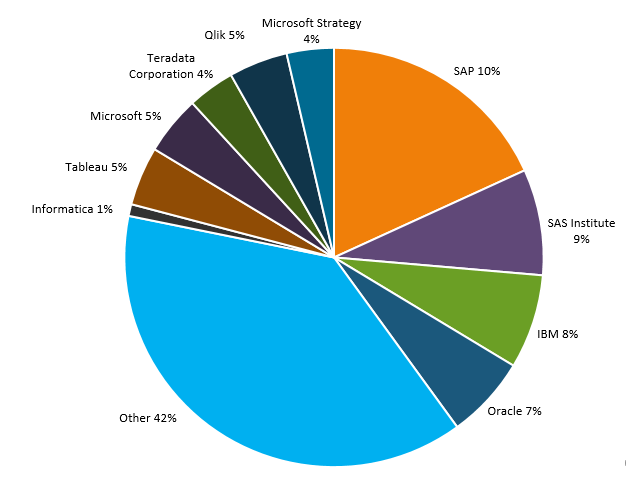


Job postings and descriptions can include:Ī clinical data analyst is hired by a hospital, research facility or pharmaceutical company to maintain data integrity, ensure compliance and prepare data for analysis. There are numerous career paths a candidate can take if they have a desire to work in healthcare business intelligence. The report states that the increase of data registries will drive this growth as more governments adopt electronic health record systems, alongside the rising pressure to reduce healthcare spending while improving patient outcomes.Ĭareers in healthcare analytics will not be limited to medical centers, clinics and hospitals, but also business analytics companies that support the healthcare industry, such as insurance vendors or pharmaceutical companies. By 2024, this market is projected to reach $50.5 billion, growing at a rate of 23.8% each year. Healthcare business intelligence uses this data to gather insights and identify trends in key health areas, from improving hospitals’ admin operations to cutting clinics’ unnecessary costs.Īccording to a report by Markets and Markets, in 2019, the global healthcare analytics market had an estimated value of $14 billion. Healthcare business intelligence, or healthcare analytics, collects and analyzes massive amounts of data from patients, hospitals and federal and state agencies, including medical records, insurance claims and billing information. Instead, it is a set of actions that collectively improve business operations that are data-informed. BI cannot be confined to one specific task or role. A business intelligence system can be conceptualized as a technological methodology that leverages business analytics, data mining, data visualization, data tools and infrastructure to give companies an overview of their data. What is business intelligence, and how does healthcare analytics utilize it?īI is the collection and analysis of data to help, among other factors, organizations make more strategic decisions, improve processes and reduce inefficiencies. While there are significant benefits to using business intelligence and data analytics within the healthcare analytics industry, there are also significant challenges, such as ensuring quality data is collected and setting up processes to act on insights in real-time. A “BI analyst” or “business intelligence developer” within the healthcare analytics industry would review these data, likely collected in a data warehouse, and apply data mining and predictive analytics techniques-or another BI tool-to gather insights. Vast amounts of data are being collected from several sources, from electronic health records to smart wearables. The healthcare industry is experiencing significant benefits using data analytics, such as reducing the cost of treatments, predicting epidemic outbreaks and improving patients’ quality of life.
#BI TOOLS IN DEMAND FULL#
Those in-demand professionals who are able to leverage BI to its full potential are able to discover valuable-often life-saving-insights.ĭata analytics is prevalent in most industries today, and it is changing the way data is managed, analyzed and used. Hiring managers are searching for candidates who understand business intelligence (BI), a conceptual field at the intersection of several technologies in data science.

Data analysis is an increasingly sought-after skill in the healthcare industry.


 0 kommentar(er)
0 kommentar(er)
